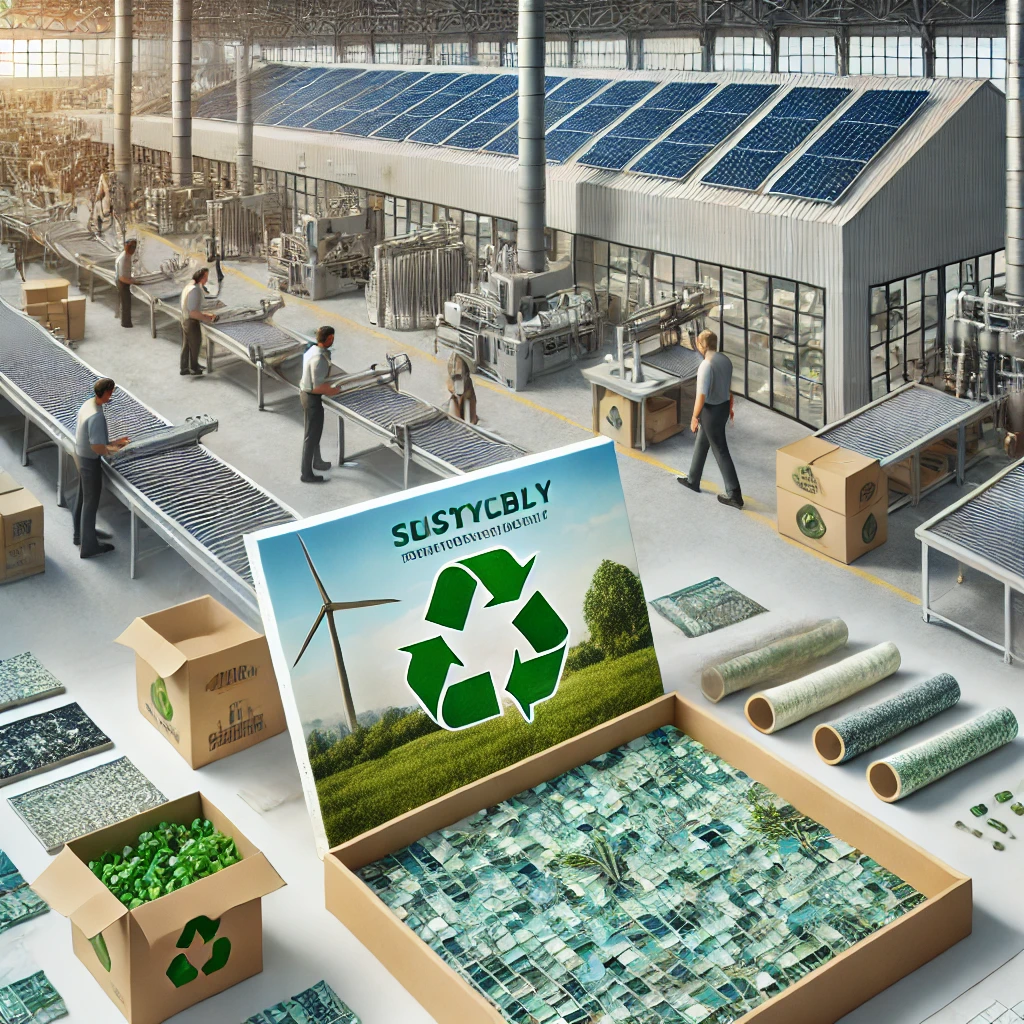Introduction
With the growing global awareness of environmental protection, the construction industry is steadily moving towards green building and sustainable development. In international engineering projects, environmental sustainability has become a key factor in procurement decisions. Especially when selecting building materials like mosaic tiles, procurement professionals must not only focus on the quality and aesthetics of the products but also consider the environmental impact of their production processes. This article explores how to integrate environmental sustainability into the selection of mosaic tiles in international procurement and provides practical recommendations.
The Necessity of Environmental Sustainability
In modern construction projects, environmental sustainability is not only related to the project’s social responsibility but also directly impacts the long-term operational costs of the building and the health of its occupants. The choice of building materials, particularly decorative materials like mosaics, plays a crucial role in the overall environmental performance of the project. By selecting environmentally certified mosaic products, procurement professionals can ensure that the materials minimize negative environmental impacts throughout their lifecycle, from production to disposal.
Significance of Environmental Certification
- LEED Certification
LEED (Leadership in Energy and Environmental Design) certification is the world’s leading green building certification system. Mosaic products that achieve LEED certification indicate that they have adhered to strict environmental standards in their design and production processes. Procuring LEED-certified mosaic products can not only enhance the environmental rating of the project but also increase its market competitiveness. - VOC Content Testing
Volatile Organic Compounds (VOCs) are common pollutants found in building materials that directly affect indoor air quality. Procurement professionals should choose mosaic products that have undergone low VOC content testing to reduce harmful emissions within buildings, ensuring the health of occupants. - Recyclable and Renewable Materials
When selecting mosaics, procurement professionals should consider whether the products are made from recyclable or renewable materials. This reduces dependency on virgin resources and lowers the environmental burden at the end of the material’s lifecycle. For example, glass mosaics are often made from recycled glass, making them an environmentally high-performing material choice.
Environmental Considerations in Mosaic Production
- Energy Use in Production
The production of mosaic tiles involves significant energy consumption. Procurement professionals should prioritize suppliers who use renewable energy or low-carbon emission technologies in their production processes. These suppliers can reduce reliance on fossil fuels, thereby lowering the carbon footprint of the products. - Wastewater and Emissions Treatment
The production of mosaics generates wastewater and emissions, which, if not properly treated, can cause severe environmental pollution. Procurement professionals should choose suppliers with comprehensive wastewater and emissions treatment systems to ensure that their production processes meet environmental standards. - Environmental Packaging
The transportation and packaging of building materials must also consider environmental factors. Procurement professionals should select mosaic suppliers who use environmentally friendly packaging materials, such as biodegradable or reusable materials, to reduce the environmental impact during transportation.
Environmental Strategies in International Procurement
- Supplier Environmental Assessment
Procurement professionals should conduct comprehensive evaluations of potential suppliers’ environmental policies and practices. This includes checking whether the supplier has ISO 14001 environmental management system certification, whether they use environmentally friendly materials, and whether they have implemented energy-saving and emission reduction measures in their production processes. These factors are crucial in determining whether a supplier meets procurement requirements. - Life Cycle Cost Analysis
When making procurement decisions, professionals should consider the life cycle cost of mosaic products, not just the initial purchase cost. This includes the product’s durability, maintenance costs, and disposal costs at the end of its life. Choosing environmentally sustainable products can often reduce long-term maintenance and replacement costs while minimizing environmental impact. - Establishing Green Procurement Policies
Clear green procurement policies help companies better implement sustainable development strategies in international engineering projects. Procurement policies should prioritize environmentally certified products and specify how environmental requirements are to be implemented in supply chain management. This will help companies build a green brand image globally and meet increasing environmental regulatory demands.
Conclusion
In international engineering procurement, environmental sustainability has become an indispensable consideration. By selecting mosaic products that meet environmental standards, procurement professionals can add green value to their projects while enhancing the overall environmental performance and market competitiveness of the buildings. In the future, as global environmental requirements continue to rise, environmental sustainability will occupy an increasingly important position in international procurement.



